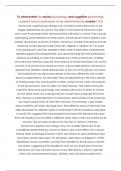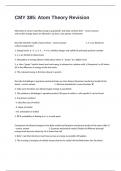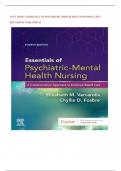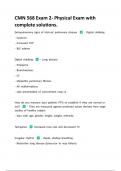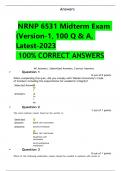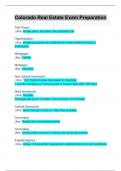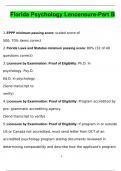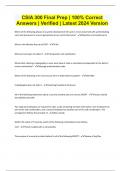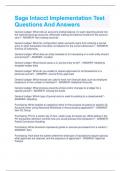Exam (elaborations)
to what extent social and cognitive psychology show nurture (12) essay
- Institution
- PEARSON (PEARSON)
essay on assessing to what extent social and cognitive psychology consider human behaviour to be determined by nurture (8 marks), including 3 PEEL paragraphs and a balanced conclusion discussing both sides of the debate for top band marks. this is for exam preparation and provides a structure to p...
[Show more]
